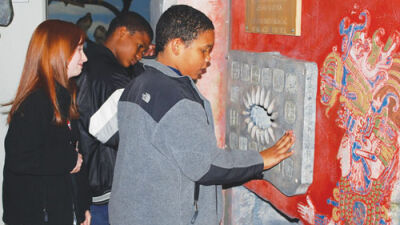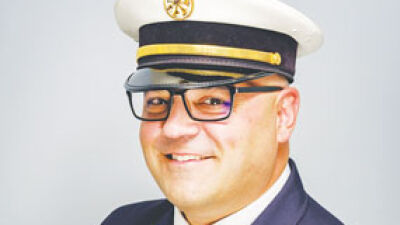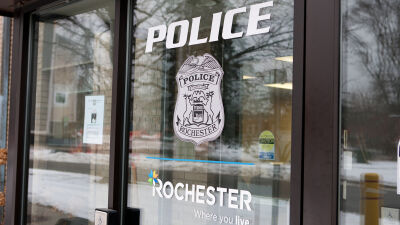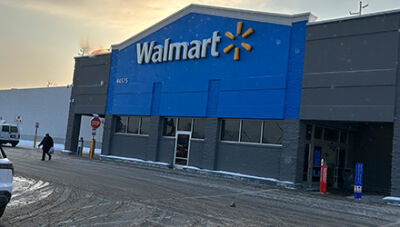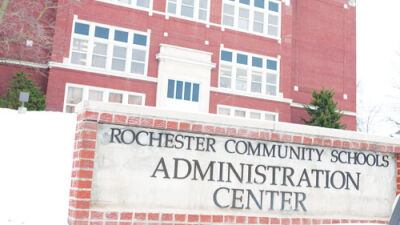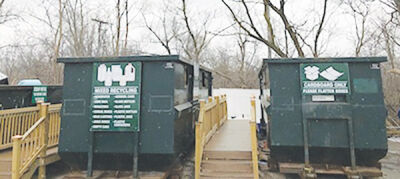
Recycling habits are showing minor improvements in southeast Michigan, according to experts, thanks to new programs to educate the public on proper recycling procedures.
Photo provided by SOCRRA
OAKLAND COUNTY — The Southeastern Oakland County Resource Recovery Authority and other recycling-focused groups are weighing the state of recycling in southeast Michigan.
Devan Dodge, the southeast Michigan recycling specialist for the Michigan Department of Environment, Great Lakes and Energy, said that recycling rates have shown some improvement since COVID in the area.
“As far as 2022 numbers go, recycling is up since pre-COVID,” she said. “We are at 19% in 2019, and we are now at 21%. … There’s definitely a few reasons. There is a huge push for curbside recycling. Cities are preparing for Paqr 115 recommendation, which requires each county to look at their capacity for landfills and recycling. We have more communities beginning to look at those standards and more services are often required. There’s definitely been a large push in recycling education. We’ve had the ‘Recycling Raccoons’ campaign since 2019, which tells people how to best recycle items. We started programs like Feet on the Street as well.”
She added that in addition to more people recycling, there also has been a noticeable increase in recycling knowledge.
“Aside from the increase, we aren’t seeing a lot of differences in how people are recycling. We are seeing more awareness among the public. People do seem to be better informed about what they can and can’t recycle,” said Dodge. “(The public should) make sure they are reading the information on their recycling bins so they aren’t throwing in items that aren’t accepted. The best way to reduce waste is to reduce consumption so there is less going into recycling and garbage bins in the first place.”
Among the recent programs some organizations have put on to promote recycling was the Feet on the Street program, piloted in Oak Park this winter. The coordinated effort between SOCRRA, EGLE and the Recycling Partnership had volunteers going through the community checking how residents were recycling and seeing where there needed to be improvement.
“In Oak Park, a community of more than 9,600 households, we flipped lids on everyone’s bins with the goal to look at as many bins before the recycling trucks caught up to us, and we left notes and tags if there were contaminants found inside the carts,” said Samantha Longshore of the Recycling Partnership. “We don’t have any results yet, but I can tell you that we are already using some of the data we’ve gathered to look at the next project in Oak Park. There is probably a good opportunity to get new people to recycle if they don’t have a recycling cart or have one and don’t use it. We are working with people in the Recycling Partnership’s Center for Sustainable Behavior and Impact to work with people recycling and how to do it through mailers.”
The program is funded by a grant from the state of Michigan and is scheduled to expand to Troy and Berkley this spring.
“We are still looking at expanding this to Troy and Berkley. We don’t know when, specifically, it will start, but we are aiming for the spring,” said Longshore. “We won’t necessarily do anything different in those two communities, but we are curious if we will see similar areas for improvement in them as we did in Oak Park. … SOCRRA is looking at other communities to expand it to, but these three communities are the three they got grant funding for. We won’t know what its future will be until we see how it goes in all three.”
She said that the best way to contribute to better recycling habits is to start at home and read up on how to live responsibly when disposing of items.
“Our state of recycling shows that about 76% of residential recyclables are being lost at the household level,” said Longshore. “We are coming in and looking at people’s recycling habits so we can target areas of improvement.”
A major change for southeast Michigan residents has been that SOCRRA, which manages recycling in several local communities, has reduced drop-off times for materials to appointment-only.
“The stuff at our drop-off center is not included in our rates, so it’s not reflected in our rates. What we weigh is what comes in from the curbside programs. We get a lot of appointments. We have a capacity of 159 a day, and most days are full,” said Jeff McKeen, the general manager of SOCRRA.“It sounds like it might be difficult to get an appointment, but you can usually get it the next day. … For the month of January, we had 3,423 appointments, so services are very heavily used by residents. We consistently have more than 3,000 appointments a month.”
He said that while feedback has been mixed, it has improved the recycling process for SOCRRA.
“We didn’t have appointments prior to the pandemic, so we don’t have data. My estimates are that we see a little less than before, when there were unrestricted drop-offs, but it’s still quite busy,” he said. “You hear different things from different people. Some really like it because it’s not as crowded, and others don’t like that they have to make an appointment now.”
The changes were initially made during the COVID-19 pandemic.
“We implemented these changes during the pandemic in 2020, when we closed for a couple of months along with the rest of the world,” McKeen said. “Our primary focus now, but especially during the pandemic, was focusing on getting all the recycling off the streets. Our trucks were so busy they couldn’t get in and out of our facility, so we weren’t getting curbside pickup collected. It remained a good policy after COVID, and we don’t have the traffic delays we once had.”
He believes the changes have led to better service overall.
“We think these changes are working out quite well,” said McKeen. “We are still seeing a lot of service use, but it’s not getting in the way of our central task, which is making sure the curbside pickup is getting picked up. Since residents pay for these services through taxes; they don’t pay for these services directly, but they pay us through their municipalities, which is why we restricted our services to residents of communities that pay into SOCRRA only.”
 Publication select ▼
Publication select ▼





